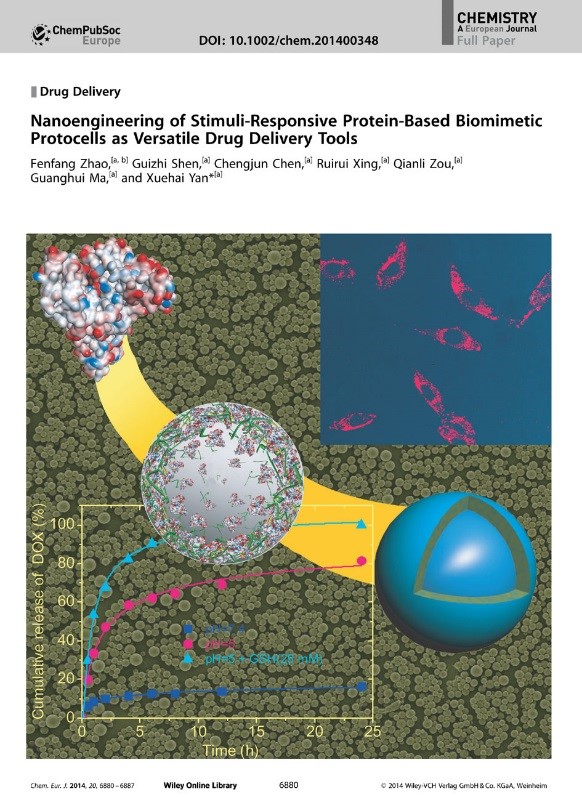Spontaneous organization involving biomacromolecules is ubiquitous and momentous in biological systems. Inspired by the interaction and function of biomacromolecules in nature, using proteins as building blocks for protocells (artificial cell-like architectures) have attracted much attention. Biomimetic protocells can be expected not only for studying aspects of abiotic cellularity in the context of the origin of life, but also for construction of various biologically benign materials at both the nano- and microscale for biological/biomedical applications, such as, drug delivery, tissue engineering, biocatalysis, and biosensors. Recently, the researchers of Institute of Process Engineering, Chinese Academy of Sciences created a general strategy to nanoengineer protein-based biomimetic protocells (colloidal spheres). This strategy involves the electrostatic binary assembly of proteins and polypeptides in association with intermolecular disulfide cross-linking. The size of the colloidal spheres, ranging from nanoscale to microscale, is readily tuned through parameters like protein and polypeptide concentration, the ratio between both, pH, and so on. Moreover, such colloidal spheres show versatile encapsulation of various guest molecules including small organic molecules and biomacromolecules. In the acidic and reductant-enriched ambient, such as in lysosomes, the payload can be rapidly released from the spheres due to the pH and redox dual-responsiveness. Thus, nanoengineering of protein-based biomimetic protocells opens a new alternative avenue for developing delivery vehicles with multifunctional properties towards a range of therapeutic and diagnostic applications. These results have been published on Chem. Eur. J. 2014, 20, 6880 – 6887 and selected as frontispiece. This research was financially supported by National Nature Science Foundation of China, Organization Department of the CPC Central Committee, and the Chinese Academy of Sciences. (By Qianli ZHOU) 
Protein-Based Biomimetic Protocells for Drug Delivery
|